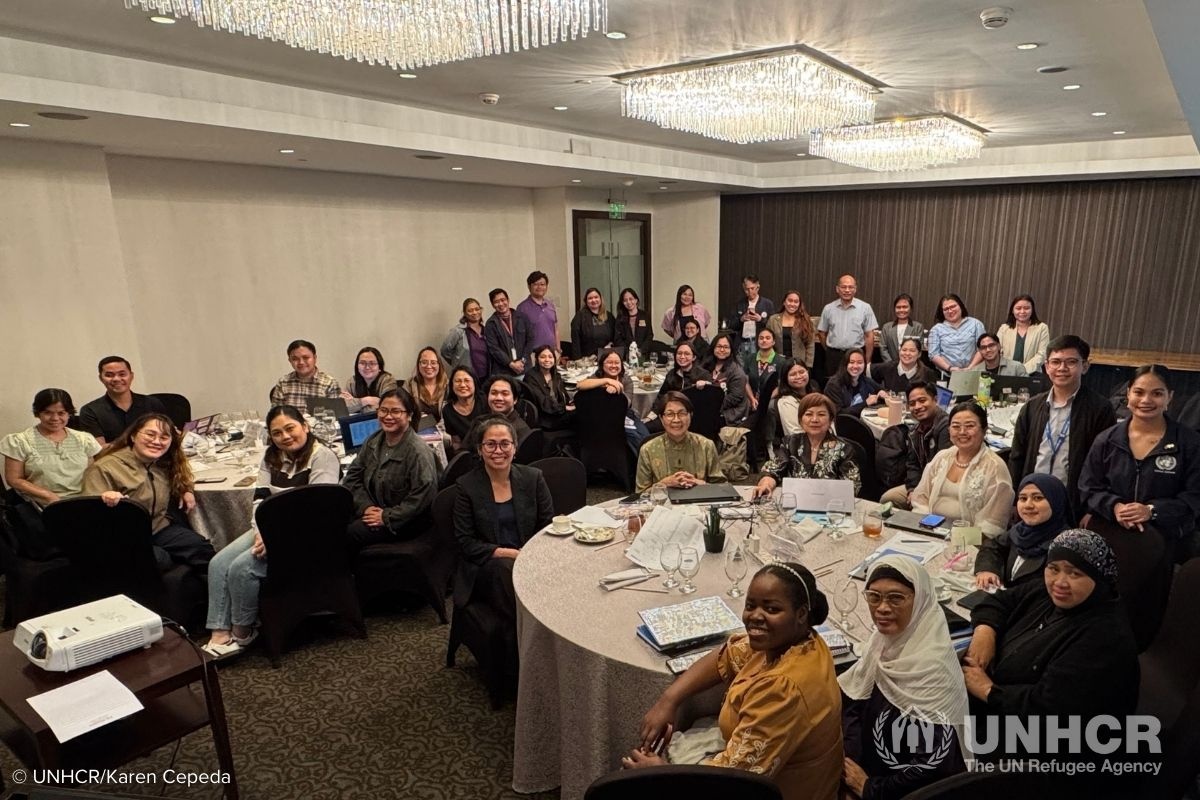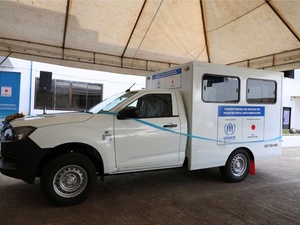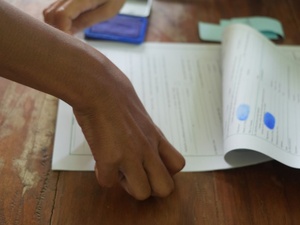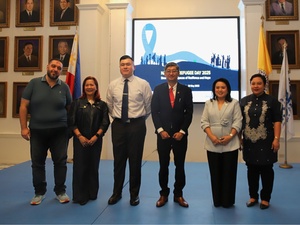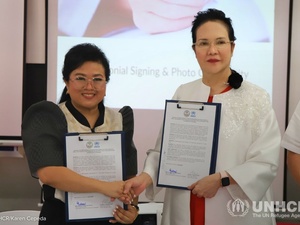Displaced and stateless women pave way for inclusive protection in the Philippines
Displaced and stateless women pave way for inclusive protection in the Philippines
A UN Refugee Agency training recently brought women from the margins of society to the centre of talks with the Philippines’ leading policymaking and oversight agency on women’s empowerment.
The diverse group of internally displaced, refugee, and stateless women shared valuable perspectives and lessons with the Philippine Commission on Women (PCW) to help ensure that policies and interventions to address their situations are gender-responsive and inclusive.
Bai Mina Madale, a community leader of IDP advocacy group Ako Bakwit, said: “I have moved on but remain wounded by the experience. Living through the Marawi siege was like being trapped in a nightmare and forced displacement can happen to anyone, which is why we must continue to tell our stories.”
She was joined in the two-day training by Rehana Mohd Rashid, one of 15 Rohingya scholars pursuing higher education in the Philippines under the country’s Complementary Pathways (CPath) programme.
“For me, this opportunity is really important. Maybe parents from my community will be convinced to allow girls to continue their education and not ask them to get married at a young age,” said Rehana. “Many Rohingya refugees don’t know how to read or write. Most of the girls in my community get married at a young age. It is hard to find Rohingya girls who work or have careers,” she added.
Josette Nimbona, a representative from a refugee women’s group, shared her experience of having to live on her own, learn new languages, and apply for refugee status in the Philippines. “Some asylum seekers are struggling and need help, especially the women, to be able to express themselves. I arrived here as a young girl, I did not know how to speak English, no Tagalog. It’s really hard to learn, but the Filipinos are very friendly and helped me.”
Their stories illuminated the technical sessions provided by UNHCR Philippines, the Department of Justice – Refugees and Stateless Persons Protection Unit (DOJ-RSPPU), and the United Nations in the Philippines’ Protection from Sexual Exploitation and Abuse (PSEA) Coordinator.
“We are lucky that in our midst, we have displaced women, stateless, and refugees You had an opportunity to listen to their struggles and to ask questions. You are in a position to speak for those who cannot speak for themselves,” said Maria Ermina Valdeavilla-Gallardo, UNHCR Philippines Head of National Office. “Each one of us has a reason why we are here. Each one of us has a role to play in ensuring people are included and lifting people who are in the lower layers of society,” she added.
The PCW is vital in ensuring that policies addressing forced displacement and statelessness are inclusive and fair, particularly for women. As co-lead of a technical working group focused on ensuring gender equality in nationality laws, and as an observer on the government’s inter-agency committee for asylum seekers, refugees, and stateless individuals, the commission plays a key role in shaping efforts to protect vulnerable groups in the Philippines.
PCW Chairperson Ermelita V. Valdeavilla emphasized the significance of her agency’s role, stating that “if we are going to champion the rights of women regardless of what kind of situation they are in, we have to know more than what is normally known – to dive deeper to the concerns and issues of women in statelessness and forced displacement situations.”
Through capacity building, more synergies between UNHCR, PCW and their networks were developed in line with efforts to advance further the protection of IDPs and people at risk of being stateless through legislative, policy, and programming reform.
***
ABOUT UNHCR
The United Nations High Commissioner for Refugees (UNHCR), the UN Refugee Agency, is a global organization dedicated to saving lives, protecting rights and building a better future for people forced to flee their homes because of conflict and persecution. We lead international action to protect refugees, forcibly displaced communities and stateless people. We deliver life-saving assistance, help safeguard fundamental human rights, and develop solutions that ensure people have a safe place called home where they can build a better future. We also work to ensure that stateless people are granted a nationality. We work in over 130 countries, using our expertise to protect and care for millions.
In the Philippines, UNHCR has maintained its presence since 1975, working on providing durable solutions to refugees, ending and reducing statelessness, and empowering displaced families.
For more information, please contact:
Karen Cepeda
External Relations Associate
[email protected]
(02) 88172398
Facebook | Twitter | Instagram


